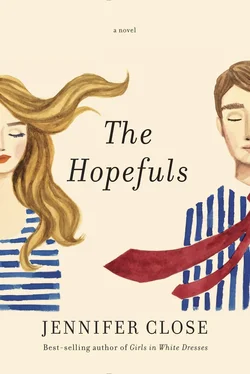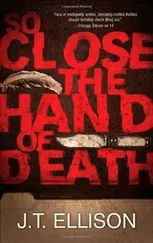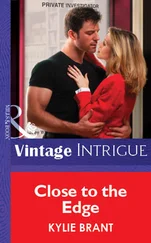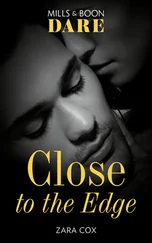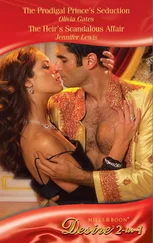Our neighborhood was full of young couples, most of them with kids but a few without. The day we moved in, our neighbor Ginny and her husband, Bob, brought over a welcome basket — a real-life welcome basket, full of jam, cookies, and gift certificates to the local pizza place. “We’re such a social block,” she told us. “You’ll love it here.” Ginny was the president of the neighborhood social committee, a title she said with so much pride, she could’ve been announcing that she was President of the United States. “It’s a lot of work,” she said. “But it’s worth it.”
Within a week, I was invited to join a book club and a Bunco group — a game I’d never played that was apparently all the rage in suburban Maryland. These people didn’t joke around about their Bunco.
Ginny was telling the truth about our neighborhood — there were BBQs and block parties and group outings to Nats games. There was always something going on and there were nights we turned down invitations just to get a little break, so we could be alone, closing our blinds so we wouldn’t offend anyone.
There were a few times that I’d be in someone’s backyard, talking about the quality of our public schools or getting a recommendation for a housepainter, and across the lawn, Matt would be discussing the Redskins and flooded basements while someone cooked cheeseburgers on the grill, and I wanted to laugh at the absurdity of it, how ordinary and boring it all was.
But those moments were few and far between. They honestly were. Mostly, I enjoyed myself at these gatherings. I liked all of our neighbors — they were funny and kind and welcoming, and I knew we’d never get to know them really well, that we’d always keep a little distance. We wouldn’t have friends like the Dillons again, another couple so entangled in our lives, and that was okay. It was probably the way it was supposed to be.
Sunday nights still belonged to the Kellys, and we showed up there every week without fail. Babs was still herself, but I didn’t feel her scrutiny as much — it’s possible I was just used to it or maybe it wasn’t as intense as before. Either way, I didn’t dread the dinners the way I once had. And at least once a week, I met up with Jenny and Nellie, sometimes for lunch or dinner, but mostly to go for walks together; just a bunch of outlaws power-walking through the suburbs of Maryland.
We saw Bruce and Colleen more than we had before, had them over for dinner often, the four of us sitting on the patio and watching Bea run around in the backyard. And maybe it’s because I’m older or less judgmental, but I see good things about them as a couple that I didn’t before — the way Bruce listens to Colleen’s long stories, how nicely she repeats things to him when he can’t hear. So much of what I used to think was ridiculous about them, now seems right. They balance each other out.
During our first year in Maryland, I felt Matt coming back to me, little by little. It happened in small ways — how he’d touch my hair as I sat nearby, when he’d bring me coffee in bed. Once, as he leaned down to hug me from behind, I drew in a sharp breath to keep from crying. Because it was only when he was back that I realized how much had been gone.
—
We see the Dillons sometimes, not alone, but when they’re in town we run into them at parties, and everything is perfectly pleasant, almost normal really. Maybe we know we can’t avoid each other and the best option is to act friendly. Maybe enough time has passed. Maybe we remember the good parts of our friendship. Or maybe we’re all really good at pretending.
They sent us a beautiful gift when our son, John, was born — a blue quilt with his name and birth date embroidered in the corner. I called Ash to thank her, but she didn’t answer, so I left a message. She responded with a text, which was fine with me. Texting (didn’t you know?) is the best way to keep in touch with people you don’t really want to talk to.
I do feel guilty that we’re Viv’s godparents, and I make sure to send presents on her birthday and Christmas and whenever else I think to. I’m sure this will slow down over time, that over the years I’ll send fewer things and then eventually stop. I can imagine that when she talks about us, she’ll say, “They were friends of my parents a long time ago, but we never see them now.” She’ll probably look at the pictures of the four of us and try to figure out why these random people were chosen to be her spiritual guides. I’m sure Ash will water down the relationship in her retelling. “We spent so much time with them in DC,” she’ll say. “Matt ran your dad’s first campaign in Texas.” But as Viv’s friends have their godparents show up at graduations with presents and envelopes full of money, I doubt she’ll care about any of that. She’ll just understand that she got pretty screwed in the godparent department.
The Dillons still send a Christmas card each year, one long letter that’s signed from Viv and written in her voice. It gives updates on Ash and Jimmy and recaps the year with some pretty priceless lines: “With all the jewelry she’s selling (and it’s a lot!), my mom says I’m still the most precious jewel of all.” “And, Praise be to God! It’s finally time to celebrate Jesus’ birthday!” It goes without saying that the card is decorated and designed by Ash, a Santa stamped on the outside of the envelope, a baby Jesus at the end of the letter.
I always want so badly to read this card out loud to Matt, since no one else could fully appreciate how ridiculous it really is, but I never bring it to his attention, afraid that mentioning the Dillons when I don’t need to will bring up bad memories. So I just leave it on top of the pile and pray that he sees it.
For the most part, I don’t miss the Dillons — not exactly, anyway. But there are times when Ash is the only person I want to talk to, when there’s something that only she would understand. Last week, we were at our block party and I watched Matt talking to our neighbors. He seemed a little too smiley, a little too friendly, like he was trying to win these people over, like he was campaigning. (We didn’t choose this district by accident. The real campaign will be along soon, I know.) And I was dying to call Ash and tell her about it, describe what it was like to watch Matt performing for them, auditioning in the middle of his real life. But I didn’t, obviously. I just turned and asked Ginny a question about Bunco and then nodded and smiled as she talked for the next twenty minutes.
—
Of all that I hate about DC, there are things I’ve learned to love, or at least to appreciate. There are fall days in October that are so beautiful they take your breath away. The sky is blue and the sun is strong and the air is finally the tiniest bit crisp. Most of the East Coast is already bundled up in their winter coats, but we get to appreciate the last of the sunshine, to hold on to it a little while longer.
And then there’s the way that people come here, earnest and full of dreams, believing that they can make a difference. That’s the thing about DC — people are always leaving but that makes space for the new transplants, the crowds that keep flooding in, full of energy and wonder.
You can see it on their faces as they walk down the street. You can spot the new people from the way they smile at the monuments, how they stare at the White House as they pass outside the gates, feeling thrilled and thinking, I’m here, I’ve made it. That’s what I see, mostly, when I walk around now, which is for the best, because it’s not easy to stay annoyed in the face of so much optimism. It’s hard to ignore that much hope.
I owe so much to my editor, Jenny Jackson, and my agent, Julie Barer. Both offered encouragement, wise notes, and patience with each draft of this book, and I’m honored to have such brilliant women on my team.
Читать дальше
